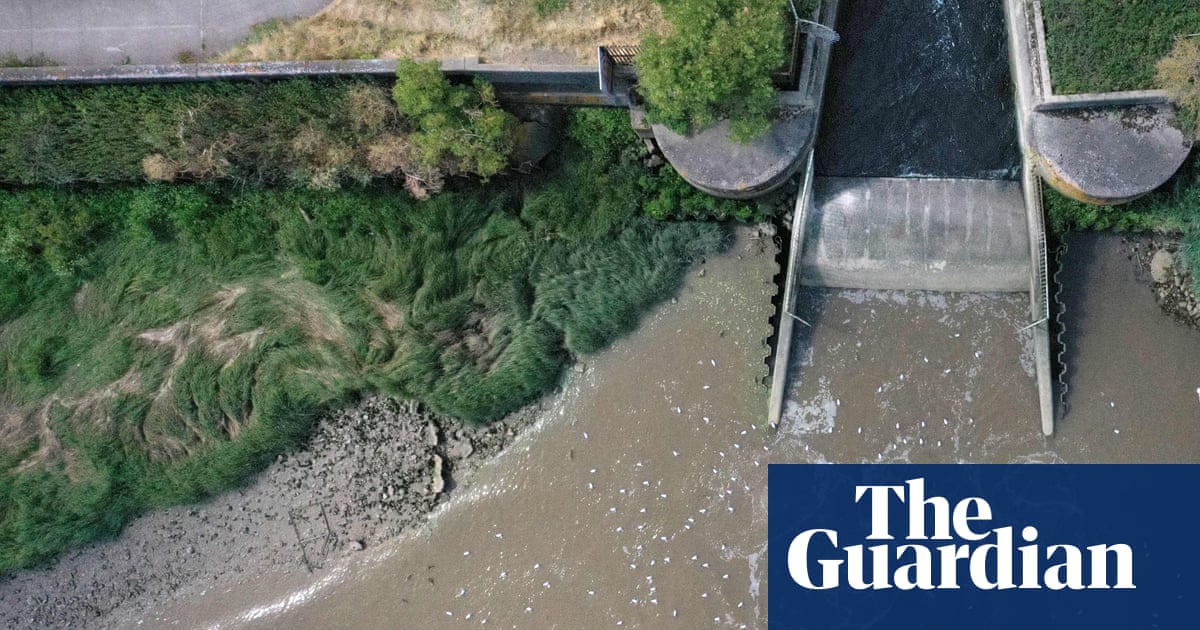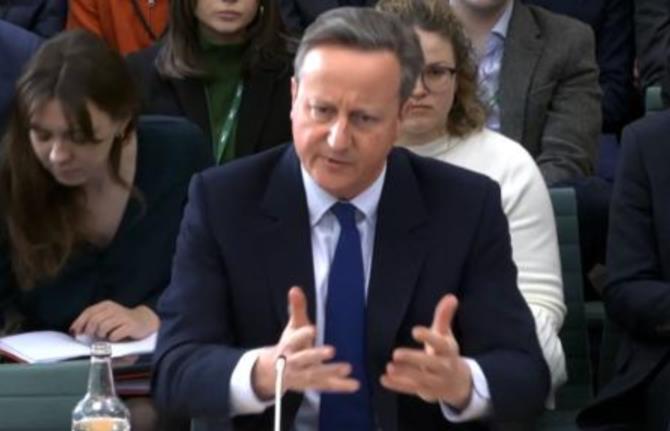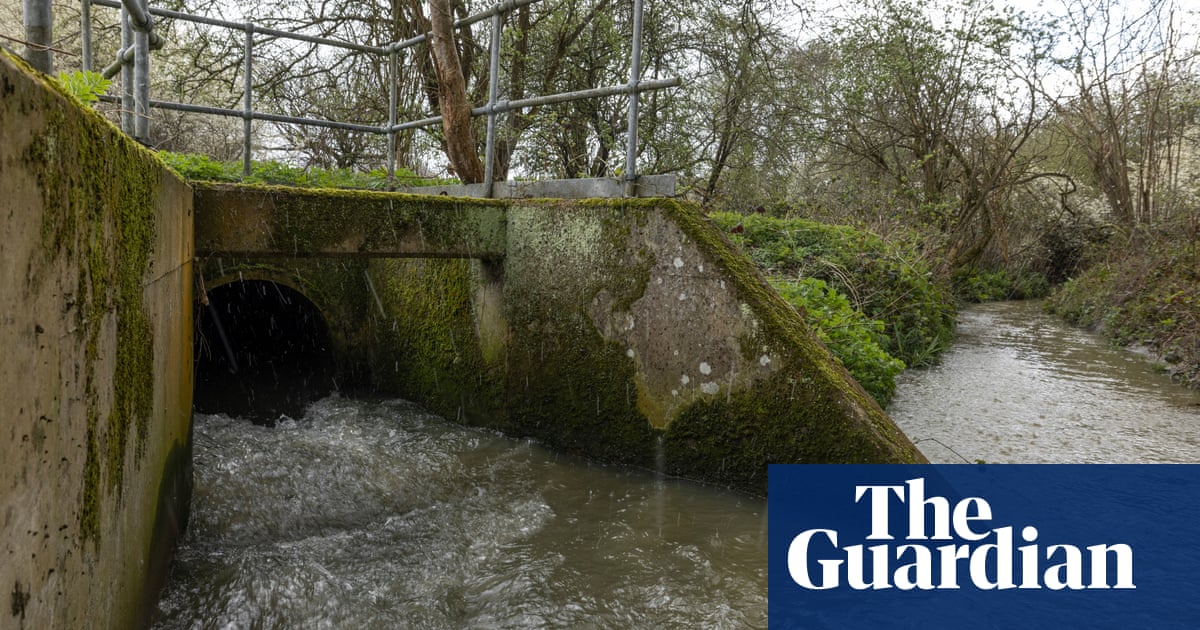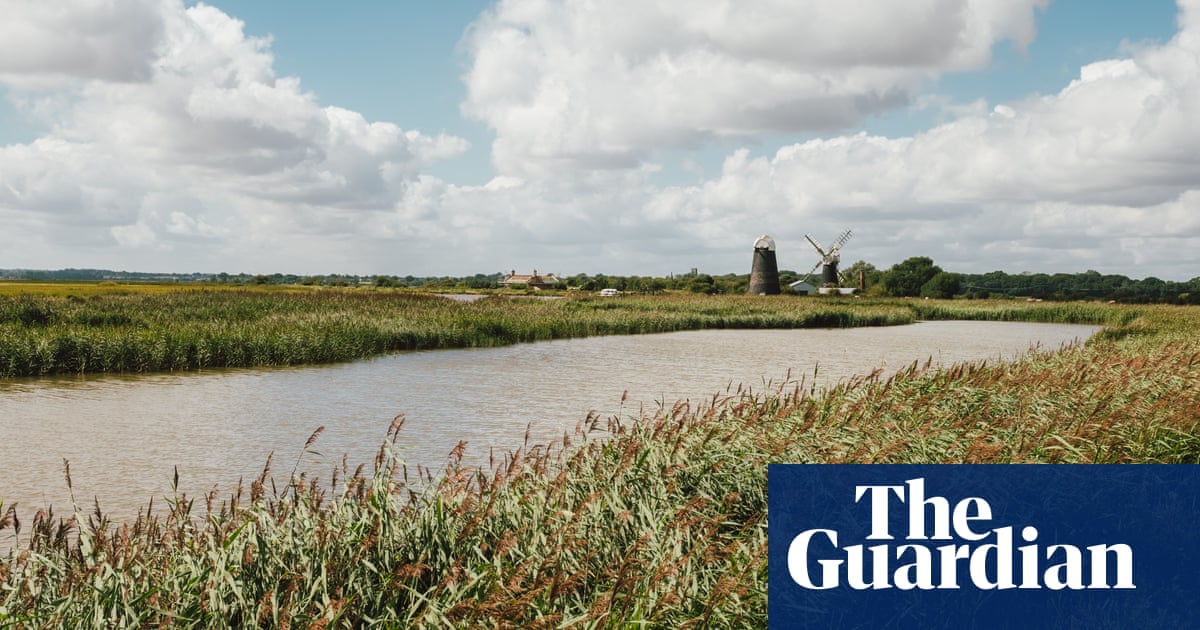
The government and regulators may have broken the law by failing to stem raw sewage dumping into rivers by water companies in England, the new independent environmental watchdog has said.
The Office for Environmental Protection (OEP), which was set up after Brexit to replace the enforcement powers of the European Commission, said an investigation suggested the government, the Environment Agency (EA) and Ofwat may be failing to comply with environmental law and allowing raw sewage to be discharged by water companies more frequently than the law allows.
The findings for the first time point the finger at ministers for not stopping raw sewage discharges into rivers and seas.
Discharges of raw sewage are allowed to be released from storm overflows on the network only in exceptional circumstances. Investigations by the Guardian and other media organisations have revealed that water companies are using storm overflows much more frequently to discharge raw sewage.
The OEP was called in to investigate by the charity WildFish, which said it believed regulators were failing in their duty to enforce the law.
On Tuesday, the OEP said: “It appears that the public authorities may have interpreted the law differently, permitting such discharges to occur more often.”
The OEP said the Environment Agency failures related to the way it set permit conditions for raw sewage releases and in the way it enforced the conditions on the permits. Ofwat, the financial regulator, had potentially failed to properly use its powers to make enforcement orders where sewerage companies had failed to treat sewage.
The watchdog said the Department for Environment, Food and Rural Affairs had possible failures relating to its duty to make enforcement orders where sewerage companies fail to comply with the law to effectively deal with sewage.
The failures are all related to duties in the urban wastewater treatment laws, which derive from EU law.
The UK government was in 2012 found to be in breach of the urban wastewater laws by the European court over raw sewage discharges.
Eleven years on, the OEP said if it found the failures were upheld it would seek to improve regulation in order to achieve long-term improvement in water quality. But the new body has far fewer powers than the European Commission when it comes to enforcement action against public bodies.
It has given the regulators two months to look at the information and to respond.
Helen Venn, the OEP’s chief regulatory officer, said: “As a result of our investigations so far, we think there may have been misinterpretations of some key points of law.
“The core of the issue is that where we interpret the law to mean that untreated sewage discharges should generally be allowed only in exceptional circumstances, such as during unusually heavy rainfall, it appears that the public authorities may have interpreted the law differently, permitting such discharges to occur more often.
“This then has consequences for the regulatory activity that follows. The guidance provided by government to regulators, and the permitting regime they put in place for the water companies, possibly allow untreated sewage discharges to occur more regularly than intended by the law without risk of sanction. This is what has created the possible failures to comply that we have identified.”
A government spokesperson said: “The volume of sewage discharged is completely unacceptable. That is why we are the first government in history to take such comprehensive action to tackle it, driving forward more investment, stronger regulation and tougher enforcement - and it’s why we are introducing a legally binding target to reduce storm overflows.
“While we do not agree with the OEP’s initial interpretations, which cover points of law spanning over two decades, we will continue to work constructively with the OEP on this issue.”
Labour’s Steve Reed MP, the shadow environment secretary, said: “Nothing represents 13 years of Conservative failure more graphically than the sight of stinking, toxic sewage pouring into our rivers, lakes, and seas. Rishi Sunak wouldn’t want raw sewage in his private swimming pool, yet he’s happy to let human excrement pollute our waterways.
“This scandal is the Conservatives’ fault. They cut back enforcement and monitoring of the water companies releasing this filth, and are now failing to prosecute them when they are blatantly breaking the law.”
Guy Linley-Adams, an in-house solicitor at WildFish, said: “Ofwat, the Environment Agency and the secretary of state are jointly responsible for the terrible sewage pollution of our rivers. They have allowed the water companies to pollute routinely, unlawfully, as a normal part of their usual business practice. Let’s be quite clear here. Those three public bodies are complicit in allowing the pollution. That must now end.”
River Action’s chair and funder, Charles Watson, said: “We have known for years that government action to protect our rivers is woefully inadequate.”
The OEP investigated storm overflows along the water network, rather than in treatment plants run by the water companies. Storm overflows in treatment plants run by six water companies are already at the centre of a major investigation by Ofwat and the EA into suspected widespread illegal dumping of sewage.
Venn said the OEP would consider the responses of the regulators before deciding on future action. This could involve issuing a decision notice and possible referral to the high court.












